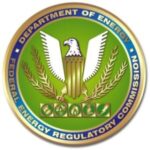Stay Current
A. Implementation of the NGC+ White Papers Nationwide standards for hydrocarbon drop out and interchangeability are a laudable goal. The challenge in articulating and implementing a policy to achieve this goal is that there is variability in the [...] Read More
As a result of discussions among the Interstate Natural Gas Association of America (INGAA), the American Gas Association (AGA) and our respective member companies about how to incorporate a proposed Natural Gas Council “Plus” technical framework [...] Read More
Pursuant to the notice of proposed rulemaking (NOPR) issued by the Federal Energy Regulatory Commission (FERC or Commission) on December 22, 2005,1 the Interstate Natural Gas Association of America (INGAA) submits the following supplemental reply [...] Read More
All of INGAA's members agree that the Commission’s eTariff proposal cannot be implemented in its present state of development. Pipeline comments will set out the defects. Many of INGAA’s members have serious concerns whether the eTariff proposal [...] Read More
INGAA requests that the Commission, in its final rule, not require pipelines to accept surety bonds as an acceptable form of collateral. INGAA further requests that the Commission, in its final rule, include all transportation charges, [...] Read More
December 8, 2005, the Commission issued Order No. 667,1 in which it amended its regulations to implement the repeal of the Public Utility Holding Company Act of 1935 and the enactment of the Public Utility Holding Company Act of 2005. On April 24, [...] Read More
Pursuant to Section 19(a) of the Natural Gas Act (“NGA”), 15 U.S.C. § 717r(a), and Rule 713 of the Federal Energy Regulatory Commission’s (“Commission” or “FERC”) Rules of Practice and Procedure, 18 C.F.R. § 385.713 (2003), the [...] Read More
Pursuant to the April 9, 2003 Notice of Proposed Rulemaking entitled Amendments to Conform Regulations to Order No. 630 (“Amendment NOPR”),1 the Interstate Natural Gas Association of America (“INGAA”) submits the following comments.INGAA [...] Read More
To ensure that necessary natural gas transportation infrastructure is constructed, that natural gas transportation costs to consumers remain fair and reasonable, and that tribes are paid reasonable compensation for rights-of-way across their land, [...] Read More
FERC has failed to justify an extension of its Standards of Conduct to the non-marketing affiliates of interstate natural gas pipelines. The facts found by the Commission - the convergence of gas and electric markets, and the existence of trading [...] Read More
Pursuant to the Notice Soliciting Public Comment issued March 3, 2005, in these dockets, the Interstate Natural Gas Association of America (“INGAA”) submits the following comments on the effectiveness of the Commission’s regulations for [...] Read More
In the NOPR, the Commission appropriately has recognized the importance of creditworthiness commitments in relation to the financing of new construction. Such commitments, however, are also critically important for new service agreements over [...] Read More
Pursuant to the Notice Seeking Comments issued March 2, 2005, the Interstate Natural Gas Association of America (“INGAA”) submits the following comments on the two reports filed in this docket by the NGC+ Interchangeability Working Group [...] Read More
Pursuant to the Commission’s notice of proposed rulemaking (“NOPR”) issued on December 22, 2005, 113 FERC ¶ 61,306, the Interstate Natural Gas Association of America (“INGAA”) submits the following supplemental comments in this proceeding [...] Read More
Pursuant to Rule 212 of the Rules of Practice and Procedure of the Federal Energy Regulatory Commission (“FERC” or “Commission”), 18 C.F.R. § 385.212 (2004), the Interstate Natural Gas Association of America (“INGAA”) hereby moves for [...] Read More
The Interstate Natural Gas Association of America (INGAA) is filing this motion pursuant to the Federal Energy Regulatory Commission (FERC or the Commission)’s Rule 212, 18 C.F.R. § 385.212. INGAA respectfully requests that the Commission: (1) [...] Read More
INGAA shares Commissioner Brownell’s concern that the Commission, through its broad ranging Notice in this case, is “creating market uncertainty with the specter of regulatory intervention, on a generic basis, in a discounting program that works [...] Read More
It is widely recognized that the demand for additional natural gas storage capacity is increasing. Enactment of section 312 of the Energy Policy Act of 2005 (“EPAct”), 15 U.S.C. § 717c(f), permitting the Commission to approve storage projects [...] Read More
INGAA’s filing of a “Petition for Clarification” with FERC while its petition for review was pending in this Court does not render the petition for review premature under this Court’s holdings in either Tennessee Gas Pipeline [...] Read More
INGAA supports the Commission’s adoption of the standards proposed in the NOPR. INGAA requests, however, that the Commission grant a 90 day extension of the effective date for implementation of the [...] Read More





